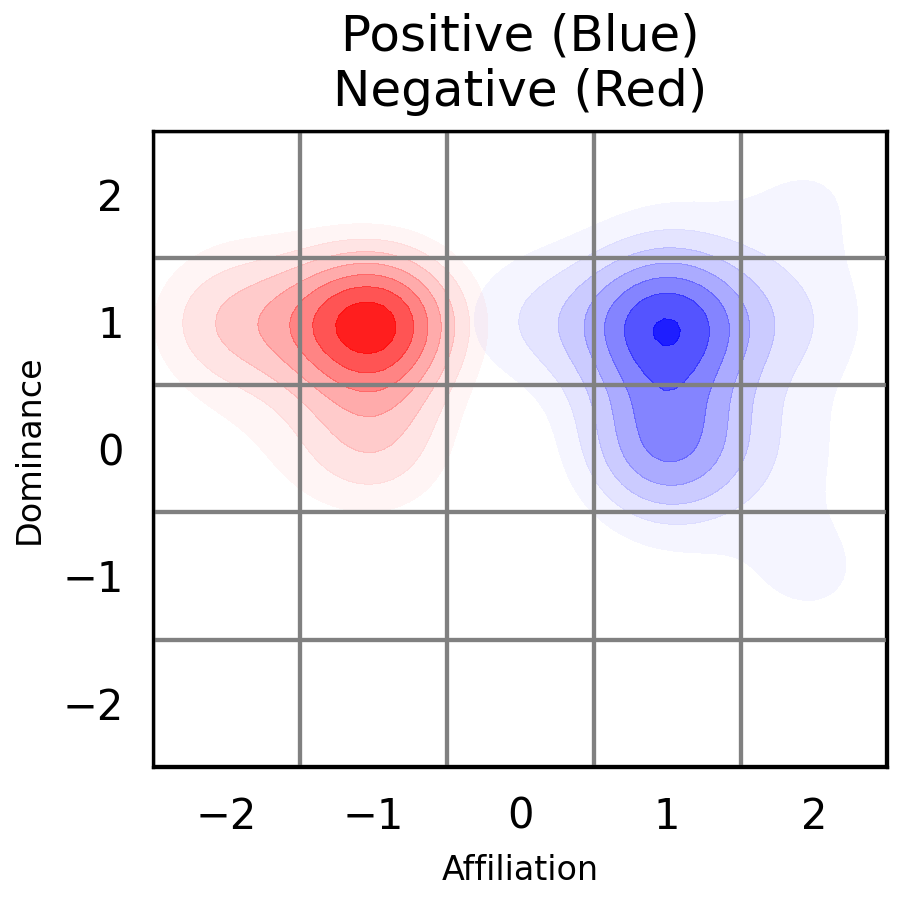I want to know how positive and negative mindset can influence interpersonal relationships with others. For example: if you have a negative mindset, would people not want to relate with you?
1 Answer
The lexical approach may assist. The lexical hypothesis states that, ‘All aspects of human personality, which are or have been of importance, interest or utility, have already become recorded in the substance of language’(Cattell, 1943) and, ‘When an idea is important, people are likely to have a word for it … the more important something is, … the more words there are likely to be’(Miller, 1996). The atlas of personality, emotion and behaviour uses a lexical approach to visualise words using the axes of affiliation and dominance (Mobbs, 2020).
Relevant synonyms are:
positive: assured, beneficial, clear, complete, confident, constructive, convincing, decisive, effective, persuasive, practical, pragmatic, proper, real, regular, sanguine, satisfied, sure, unreserved, useful, wholehearted, worthwhile.
negative: adversarial, adverse, damaging, derogatory, destructive, dismissive, disparaging, hostile, inhospitable, prejudicial, untoward.
At face value, people with the traits associated with positive are more likely to attract others. The traits associated with negative are more likely to dissuade others from associating with the individual.
The visualisation of positive and negative according to the atlas approach is shown below.
References
Cattell RB. The description of personality: basic traits resolved into clusters. J Abnorm Soc Psychol. 1943; 38: 476–506. https://doi.org/10.1037/h0054116
Miller GA. The science of words. New York: Scientific American Library; 1996.
Mobbs AED (2020) An atlas of personality, emotion and behaviour. PLoS ONE 15(1): e0227877. https://doi.org/10.1371/journal.pone.0227877
Declared interest: I am the author of the atlas paper.
